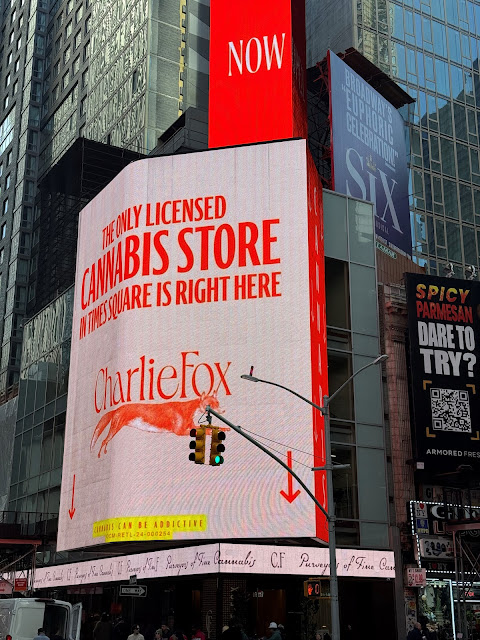The NYT has a long story this morning on attention deficit hyperactivity disorder (ADHD) and the amphetamines prescribed to treat it, which go by the brand names Adderall and Ritalin. College students sometimes take one of these as a performance-enhancing study aide, so I read the story with attention.The undergraduates I meet always deny taking it but know those who do, and acknowledge that it is readily available. The story suggests that it might be most helpful for studying boring material...
Have We Been Thinking About A.D.H.D. All Wrong?
Even as prescriptions rise to a record high, some experts have begun to question our assumptions about the condition — and how to treat it. By Paul Tough
" The number of American children diagnosed with A.D.H.D. more than doubled in the early 1990s, from fewer than a million patients in 1990 to more than two million in 1993, almost two-thirds of whom were prescribed Ritalin.
...
" Last year, the Centers for Disease Control and Prevention reported that 11.4 percent of American children had been diagnosed with A.D.H.D., a record high. That figure includes 15.5 percent of American adolescents, 21 percent of 14-year-old boys and 23 percent of 17-year-old boys. Seven million American children have received an A.D.H.D. diagnosis, up from six million in 2016 and two million in the mid-1990s.
The preferred treatment for A.D.H.D. remains stimulant medications, including Ritalin and Adderall, and the market for those stimulants has expanded rapidly in recent years, in step with the growth of the diagnosis. From 2012 to 2022, the total number of prescriptions for stimulants to treat A.D.H.D. increased in the United States by 58 percent. Although the prescription rate is highest among boys ages 10 to 14, the real growth market today for stimulant medication is adults. In 2012, Americans in their 30s were issued five million prescriptions for stimulants to treat A.D.H.D.; a decade later, that figure had more than tripled, rising to 18 million.
That ever-expanding mountain of pills rests on certain assumptions: that A.D.H.D. is a medical disorder that demands a medical solution; that it is caused by inherent deficits in children’s brains; and that the medications we give them repair those deficits.
...
"Accurately diagnosing A.D.H.D. can be challenging, for a number of reasons. Unlike with diabetes, there is no reliable biological test for A.D.H.D. The diagnostic criteria in the D.S.M. often require subjective judgment, and historically those criteria have been quite fluid, shifting with each revision of the manual. The diagnosis encompasses a wide variety of behaviors. There are two main kinds of A.D.H.D., inattentive and hyperactive/impulsive, and children in one category often seem to have little in common with children in the other. There are people with A.D.H.D. whom you can’t get to stop talking and others whom you can’t get to start. Some are excessively eager and enthusiastic; others are irritable and moody.
...
"Farah directed me to the work of Scott Vrecko, a sociologist who conducted a series of interviews with students at an American university who used stimulant medication without a prescription. He wrote that the students he interviewed would often “frame the functional benefits of stimulants in cognitive-sounding terms.” But when he dug a little deeper, he found that the students tended to talk about their attention struggles, and the benefits they experienced with medication, in emotional terms rather than intellectual ones. Without the pills, they said, they just didn’t feel interested in the assignments they were supposed to be doing. They didn’t feel motivated. It all seemed pointless.
"On stimulant medication, those emotions flipped. “You start to feel such a connection to what you’re working on,” one undergraduate told Vrecko. “It’s almost like you fall in love with it.” As another student put it: On Adderall, “you’re interested in what you’re doing, even if it’s boring.”
"Historically, this is one of the main reasons people have taken amphetamines: They make tedious tasks seem more interesting. During World War II, the American military distributed tens of millions of amphetamine tablets to enlisted men for use during the many boring stretches of war. The pills were given to Air Force pilots flying long missions and to Navy sailors who had to keep watch all night. In the 1950s, suburban housewives took amphetamines to get through the boredom of endless days of housework and child care. Long-distance truckers have for decades used them to tolerate the tedium of the road. For the college students Scott Vrecko interviewed, term papers were just as boring as laundry or a long-haul truck route — but they became more bearable with the help of stimulants.
...
"Compared with other psychiatric medications, Gabrieli explained, Ritalin and Adderall (and the many similar formulations on the market today) are relatively safe and effective. They don’t help everyone, but in the short term, at least, they provide significant symptom control in most of the children who take them. Clinicians generally consider them easy to prescribe, in part because they’re usually easy for patients to quit. Unlike antidepressants or many anti-anxiety medications, they don’t linger in the bloodstream for more than a day, which means that even with the extended-release versions, they don’t require a weaning process. You can just stop taking them. “At some level,” Gabrieli told me, “these stimulants are not that far from Red Bull.”





